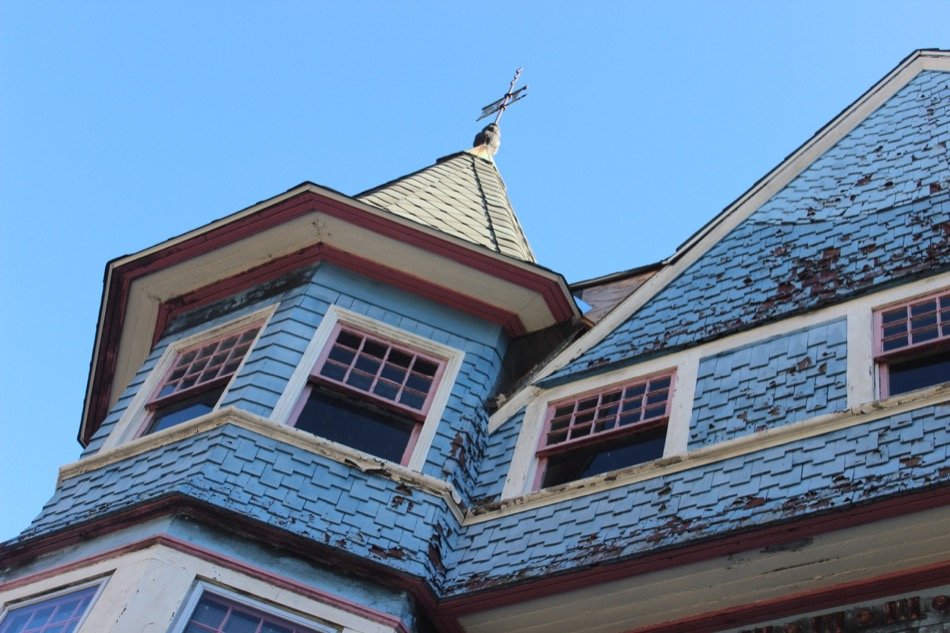What To Know About Buying and Owning a Historic Home
Posted by Dave Kotler on Friday, January 7th, 2022 at 10:38am.
 Kelowna North homebuyers don’t have to be history buffs in order to buy a historic home. Historic homes are available to anyone who has the proper budget and is willing to work to maintain it. But what exactly is a historic home? These homes are buildings historic figures have lived in or where historic events have taken place. If living in this sort of home sounds like a dream come true, the next step is to understand what goes into owning a historic home. Here are some of the things buyers need to consider before purchasing a historic home.
Kelowna North homebuyers don’t have to be history buffs in order to buy a historic home. Historic homes are available to anyone who has the proper budget and is willing to work to maintain it. But what exactly is a historic home? These homes are buildings historic figures have lived in or where historic events have taken place. If living in this sort of home sounds like a dream come true, the next step is to understand what goes into owning a historic home. Here are some of the things buyers need to consider before purchasing a historic home.
For informational purposes only. Always consult with a licensed real estate professional before proceeding with any real estate transaction.
Historic Homes Often Require Renovating
While it’s possible to find a historic home with the work already done, more often, historic homes are sold as fixer-upper homes. Buyers need to have a good idea of how much money they will need to fix the home. For this, it’s always recommended to have a thorough home inspection. Home inspectors are able to find most or all of the problems a home can have, and the buyers can use that information to create a renovation budget. As a general rule, it can be a good idea to budget at least 1% of the home’s total value for renovations each year.
Historic Homes Have Regulations
Many buyers who love renovating and DIY projects may want to pause before buying a historic home. Because these homes are part of history and have historical value, they will often come with a set of guidelines stating what the owners can and can’t do with the home. These guidelines may vary by province, city, or even on a home-to-home basis. Even small things, like the species of wood used to make the hardwood floors, can be regulated. To avoid fees and penalties, homeowners need to know exactly what they can and can’t do.
Historic Homes Can be Difficult to Renovate
DIY may not be an option for some historic homes, especially for large jobs. In these cases, the homeowner will need to know when to turn to a contractor for help. However, historic homes often use materials not commonly used anymore and antiquated methods. Because of this, it can be extremely difficult to find a contractor who knows how to do what is required to work on the home. Homeowners will need to look for specialized contractors, and these contractors can be more expensive. After all, nearly every roofer knows how to install asphalt shingles, but how many electricians are able to repair original wiring from 1928?
Historic Homes Come With Financial Incentives
Owning a historic home definitely isn’t for everyone. However, for buyers who are on the fence, it may help the decision-making process to know the government provides financial incentives to those who go forward with it. The exact bonuses a homeowner will get from owning their historic home will vary depending on the province and where they live locally. Buyers should check with their real estate agents to find out which sort of incentives they’re eligible for. They can potentially get grants, tax breaks, and more. Because it varies depending on location, buyers need to know what incentives they’re eligible for if it’s going to be a major deciding factor.
Historic Homes Have Unique Aspects and Charm
Buying a historic home can provide many unique aspects and beautiful charm. Owning a historic home is like stepping back in time, primarily when homeowners have maintained and restored all the fantastic features, such as antique door knockers, intricate crown moulding, and ornate fireplaces. Historic homes also have unique architecture and are not the typical dwellings homebuyers often see in newer communities and subdivisions.
The history within the walls of a historic home adds to the charming characteristics of the property. By buying a historic home, owners not only enjoy the unique features and charm but are also helping keep the history in the community alive.
Living in a historic home can feel like living in another era, but it isn’t quite as simple as most people assume. When considering purchasing a historic home, it’s important to keep these things in mind so there aren’t any unexpected surprises after closing.
For informational purposes only. Always consult with a licensed real estate professional before proceeding with any real estate transaction.
Dave Kotler

